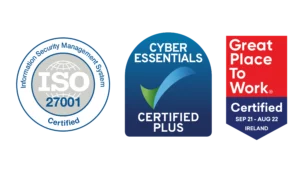Better search
Everybody wants better search. Accountants and lawyers are no exception. The sheer size and rate of change of the corpus of materials they need to use just to get through an audit project or legal document can be mind-boggling.
Search gives them access to all the content they need, but there can be too many results to sift through making it difficult to find exactly what they are looking for. It takes longer and longer to find the content they need for each task on their internal portals, and it seems that no amount of improving the search or navigation features makes any difference.
User experience: common thread of problems
Listening to the problems that our customers in the regulatory and legislative domains have encountered in this area has enabled us to identify a common thread of frustration.
Accountants struggle to comprehend why they should have to tell the computer that they are working on an annual audit for an oil and gas company with a December 31st year end, registered in Jersey, for example, when it should know that already from the audit package they are using. Or, why they should have to manually dig out all the relevant regulatory references to look for changes that have occurred over the past year, given that these are all listed in the P&L and Balance Sheet?
Likewise, lawyers and legal publishers face similar challenges. For example, they’re familiar with a specific SEC rule, but when they want to see if anything has changed in the past 6 months, they want to be able to quickly see specific changes that have occurred in this time frame rather than have to review all versions and try to figure out the changes.
Listening to the problems that our customers in the regulatory and legislative domains have encountered in this area has enabled us to identify a common thread of frustration.
Joining up the dots by contextualizing search
Tackling this common thread of frustrations is crucial to improving search functionality for accountants and lawyers so that they can get the content they need at the click of a button. For many, the tools they spend their time using and the tools that contain all the potentially relevant knowledge are not joined up. The key to joining them is to leverage all of the context available, to contextualize the searching of the knowledge base automatically.
Then, all of a sudden, search is able to behave in a very smart way because it automatically has all the context relevant to the particular task at hand. This can be illustrated with the following example: you search for “transfer pricing” and the search results that appear at the top are: “transfer pricing content relevant to oil and gas concerns registered in Jersey” and “changes in transfer pricing guidance and regulations since December 31st of last year.” Previously, the results that would have appeared first would have been much more generic and less relevant.
Contextualized search: the future of knowledge management
The future of knowledge management and knowledge portals does not lie in the creation of fancier and fancier search screens. It comes from embedding contextualized search directly inside the applications accountants and lawyers use daily to get their jobs done so that you can take advantage of all the rich data available.
This way, the best and most relevant results for your searches will automatically bubble to the top. In particular, given the cyclical nature of tasks like audits, the key to getting better search results is to pay very close attention to what has changed since the last cycle. Building a fancier search screen won’t yield results.
Traditional portals are not good at mind-reading. They can’t predict the context you are working in without you having to spell it all out. That is where intelligent integration with the actual line-of-business applications can be significantly better.
Moving search to the next level
To enable this type of functionality, we need to ensure that users can:
- Find information in content management systems quickly through faceted search
- Easily navigate regulatory changes over time
- Access multi-functional APIs
Taken together, these three features are what will move things to the next level by collectively directing you to the most relevant information at just the right time to get the job done effectively and efficiently.
Intelligent integration
Traditional portals are not good at mind-reading. They can’t predict the context you are working in without you having to spell it all out. That is where intelligent integration with the actual line-of-business applications can be significantly better than both the traditional knowledge portal and generic internet search engines.
Intelligent integration with the day-to-day applications is an addition to, rather than a replacement for, the classic portal “web browser front door” approach to knowledge portals. But, one thing for sure is that contextualized content is the future of search when it comes to meeting the growing needs of accountants, auditors, lawyers, and more and more professionals working in specialist fields.

